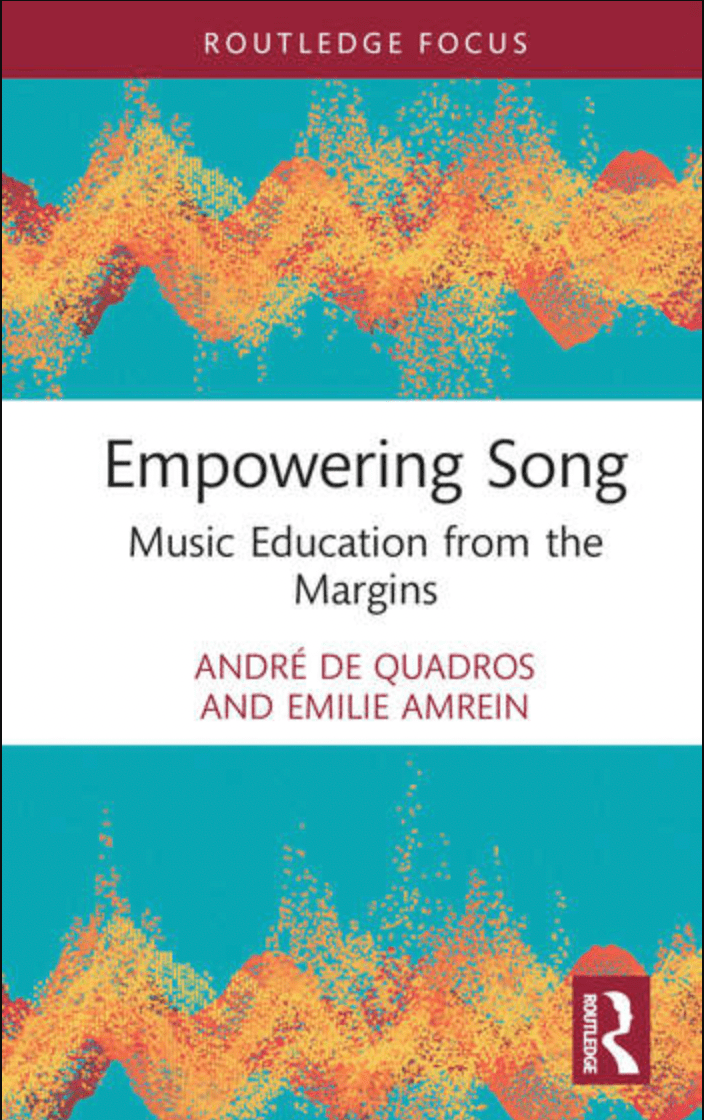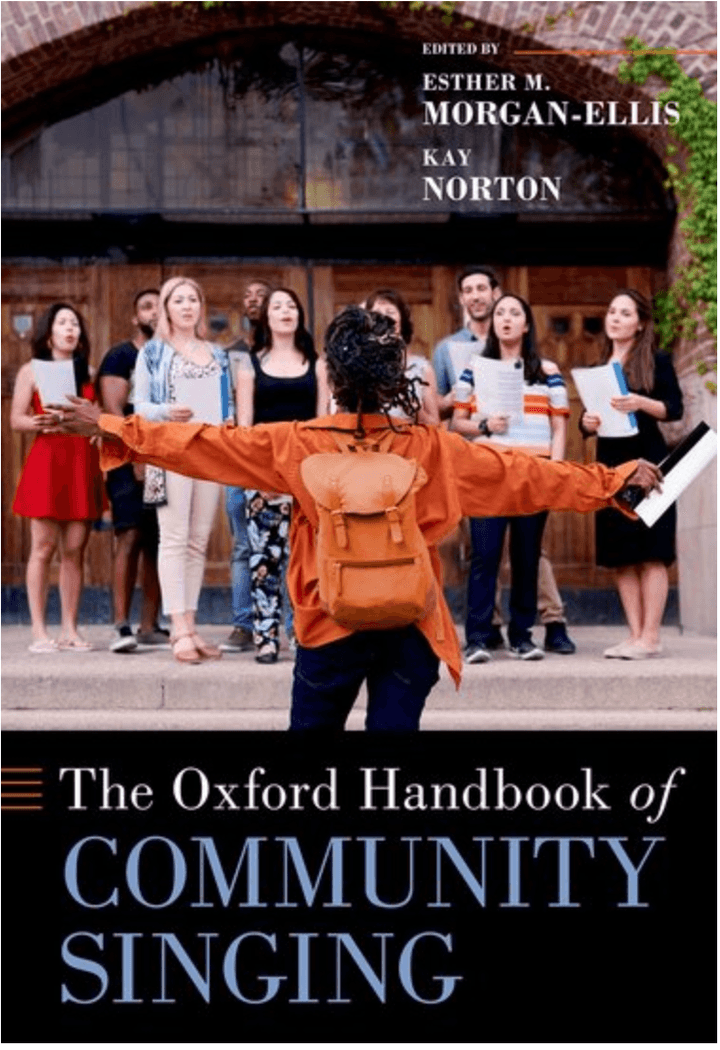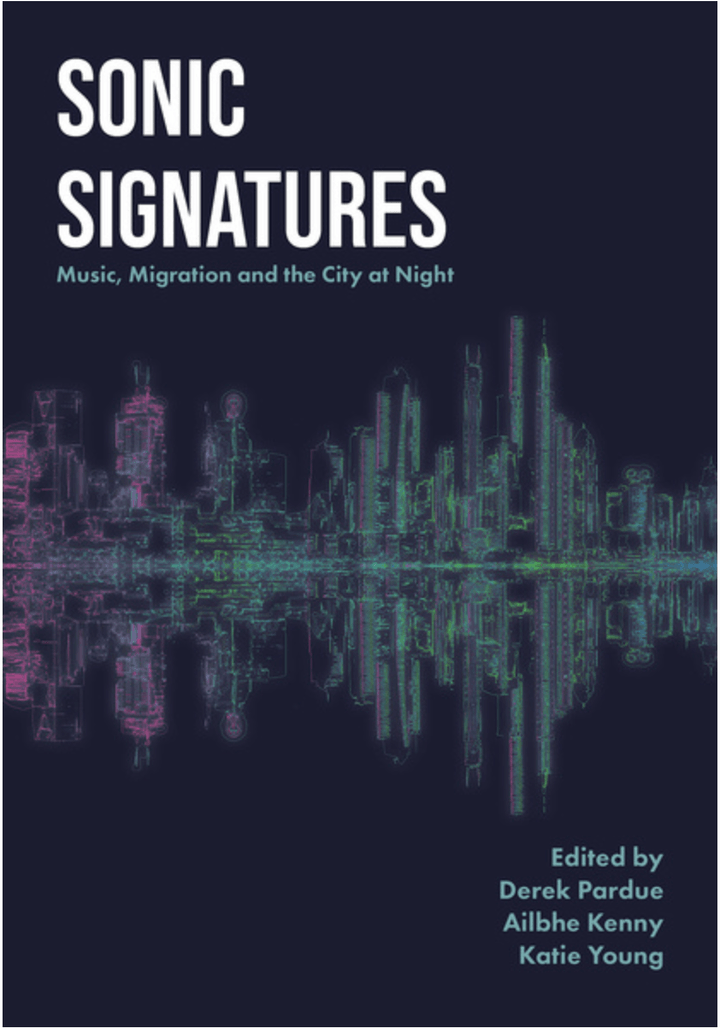


Biography

Emilie Amrein is a scholar, artist, educator, and activist whose professional activities resist and unsettle the boundaries of academic disciplines. They locate their work in community practice, drawing on the revolutionary wisdom of abolitionist, anti-colonial, and anti-capitalist organizers and freedom dreamers from the Majority World. Widely regarded as one of the nation’s most progressive thinkers in the arts and social justice, Amrein’s professional life traverses a number of disciplines, epistemologies, and fields. They position themself in the confluence and trans spaces of arts education, community arts, community development, activism, and public practice in the arts.
Amrein's professional work has taken them to diverse settings, spanning professional arts ensembles, and engagement with incarcerated folx, refugees and asylum-seekers, LGBTQ+ communities, and justice-deprived locations. They have given numerous talks for national and international audiences and creative workshops with community groups. Their co-authored book, Empowering Song, is considered a ground-breaking pedagogical and epistemological frame. Amrein currently serves as Executive Director of UTSA Arts, Associate Dean for community engagement, and professor of community arts leadership, education, and practice at the University of Texas at San Antonio.
Recent Publications
de Quadros, A. and Amrein, E. (2023). Empowering Song: Music Education from the Margins, Routledge.
Empowering Song: Music Education from the Margins (2023) weaves together subversive pedagogy and theories of resistance with community music education and choral music, inspiring professionals to revisit and reconsider their pedagogical practices and approaches. The authors’ unique insight into some of the most marginalized and justice-deprived contexts in the world — prisons, refugee shelters, detention facilities, and migrant encampments — breeds evocative and compassionate enquiry, laying the theoretical groundwork for pedagogical practices while detailing the many facets of equity-centered, musical leadership. Presenting an orientation to healing informed by theory, Empowering Song explores the ways in which music education might take on the challenging questions of cultural responsiveness within the context of justice, seeking to change not only how choral music is led but also our conceptions of why it should matter to all.
Amrein, E. & de Quadros, A. (2024). Border Transgressions: Song, Story, and Communal. In E. Morgan-Ellis & K. Norton, (Eds.), The Oxford Handbook of Community Singing. Oxford University Press.
Eurocentric choral practice represents a small slice of the 70,000-year-old phenomenon of communal singing, yet it dominates in the imagination of singing communities. This narrow paradigm of group singing persists within a series of interlocking ideologies—settler colonialism, racialized capitalism, white supremacy, and cisheteropatriarchy—that continue to cause harm to individuals and communities around the world. This chapter argues, therefore, that choral music’s white racial frame impoverishes the power and potential of choral musicking in the Western world. In this chapter, the authors present exemplars and experiences of community singing that depart from typical choral activity, arguing that when the performative is displaced in favor of the participatory, and the stage is replaced by communal spaces, the possibilities for expressive and empowering practice can be greater. They detail narrative work behind walls and borders, real and metaphoric, disciplinary and interdisciplinary, and geographic/demographic. Their narratives traverse communal practice in Islam, in prisons and detention centers, and with forced migrants on the Mexico–US border.Selected Video Recordings
In the spring of 2023, the University of San Diego Choral Scholars, under the direction of Emilie Amrein, devised a speculative sci-fi choral opera that imagined a dystopian future after a great flood. In this scene, students explored themes of capivity, resistance, and hope.
This video features the University of San Diego Choral Scholars, under the direction of Emilie Amrein, at their April 2022 performance at the San Diego Sings Festival at the Baker-Baum Concert Hall at Conrad Prebys Performing Arts Center in La Jolla.
Repertoire: Trilo - Ale Moeller; Hands - Jocelyn Hagen (featuring soloists Julia McAtee and Jack Hemphill); and Fire - Katerina Gimon. Improvisations between pieces and choreography devised by the ensemble.
This choral meditation was recorded remotely by artists from Mexico, the United States, the Dominican Republic, and India, who regularly collaborate with the ensemble Common Ground Voices / La Frontera. They devised this piece in response to The Choral Commons Podcast episode #10, Borders, Bridges, and the Choir, a conversation with Ahmed Anzaldúa. The text source for this piece was a quote from the book This Bridge Called My Back by Chicana poet, author, and activist, Gloria Anzaldúa. "Caminante, no hay puentes, se hace puentes al andar. / Voyager, there are no bridges, one builds them as one walks."
This piece samples the sound sculptures of artist, Glenn Weyant, who writes, "One of the passions I have right now is amplifying objects, both found and in public spaces, that sort of thing. The way that I do this is a use a contact microphone, which is very similar to a stethoscope in that you place it on something and it picks up the vibrations and the sounds that are occurring from that object. What I did was go down to Nogales, Arizona, which is a town on the border with Mexico and the United States. There is a wall that separates the United States from Mexico in Nogales. It is made of mostly steel salvaged from helicopter pads used by the U.S. military in Vietnam and Desert Storm. I went to the wall with my contact microphone and my gear, hooked up the microphone to the wall. I had a cello bow and began to play it. I also bowed some of the barbed wire fences that are in the area as well."
Additionally, the piece features a prominent quotation from the fourth movement of Joby Talbot's Path of Miracles. The quotation symbolizes the objects and mementos that forced migrants carry with them as they journey. "What if you had been forced to leave home suddenly, fleeing war or escaping poverty? Could you have brought your prized possession? Would you have found something new along the way?" (UNICEF, Children Uprooted: The Things They Carried, 2019) The dancers performed on railroad tracks in Boston, in front of a wall in San Diego, and on a bridge in Tijuana, Baja California.
Selected Concert Programs
Intersections: Considering Matthew Shepard (2022)
Choirs from USD, SDSU, and MiraCosta College
Portraits: Anne Frank & Dietrich Bonhoeffer (2020)
The USD Choral Scholars & Sacra/Profana
Crossings: Migration Music (2017)
USD Choral Scholars & Concert Choir with Peregrine Music
Copyright 2022





